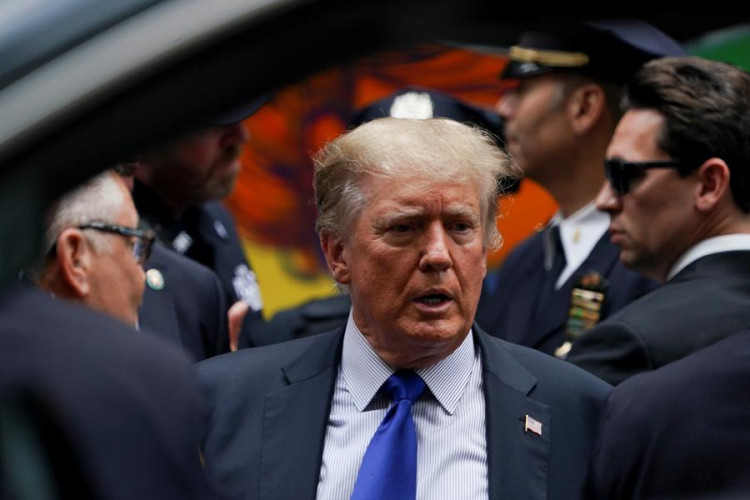In a significant legal reprieve for former President Donald Trump, the sentencing for his hush money convictions has been postponed until at least September. This delay follows a decision by the presiding judge to consider the implications of a recent Supreme Court ruling on presidential immunity.
Trump had originally been scheduled for sentencing on July 11, just before the Republican National Convention. The new timeline, however, sets the sentencing date for September 18 at the earliest, coinciding closely with the heat of the election campaign. Trump's legal team argues that the Supreme Court ruling not only justifies delaying the sentencing but also warrants dismissing his conviction altogether.
"The impact of the Immunity Ruling is a loud and clear signal for justice in the United States," Trump declared on his Truth Social media platform, claiming the Supreme Court's decision offered him "total exoneration" in this and other criminal cases he faces.
There was no immediate comment from Manhattan prosecutors, who initiated the hush money case. The delay places the sentencing much closer to Election Day, potentially bringing the issue to the forefront of voters' minds as they prepare to cast their ballots.
The delay in Trump's sentencing is the latest in a series of political and legal victories for the former president. The Supreme Court's recent decision has effectively postponed the possibility of Trump facing trial for his 2020 election interference case in Washington before this November's vote. This timing aligns with Trump's strategy of delaying his four criminal cases beyond the election.
In another legal matter, an appeals court has paused a separate election interference case against Trump in Georgia, and no trial date has been set. His federal classified documents case in Florida remains mired in pretrial disputes, leading to an indefinite delay in the trial date.
The Supreme Court's ruling grants broad immunity protections to presidents, restricting prosecutors from using official acts as evidence to prove unofficial actions violated the law. The justices emphasized that former presidents are absolutely immune from prosecution for actions within their core constitutional duties and presumptively immune for other official acts, but they are not immune from prosecution for purely personal acts.
How this ruling will affect the New York hush money case remains unclear. The case involves allegations that Trump, before his presidency, participated in a scheme to suppress potentially damaging stories about his personal life during the 2016 campaign. However, the actual charges pertain to payments made in 2017 to his then-lawyer, Michael Cohen, who facilitated hush money payments on Trump's behalf. Trump was president when he signed the relevant checks to Cohen.
Previously, Trump's lawyers unsuccessfully attempted to exclude certain evidence, arguing that it involved official acts, including social media posts he made as president. Judge Juan M. Merchan had rejected this argument, stating it would be "hard to convince me that something that he tweeted out to millions of people voluntarily cannot be used in court when it's not being presented as a crime."
In response to the Supreme Court ruling, Trump's attorney requested that Merchan set aside the jury's guilty verdict and delay the sentencing. Merchan indicated he would make a ruling by September 6, with the next court date set for September 18 if necessary.
Trump's defense team contends that Manhattan prosecutors placed undue emphasis on official acts evidence, such as Trump's social media posts and witness testimony about Oval Office meetings. Prosecutors, while maintaining that these arguments are without merit, agreed to the postponement to allow the judge to consider the implications of the Supreme Court decision.
Trump was convicted on May 30 of 34 counts of falsifying business records related to a $130,000 hush money payment to adult film actress Stormy Daniels just before the 2016 election. Daniels alleges she had a sexual encounter with Trump in 2006, a claim Trump has repeatedly denied.
Prosecutors assert that the payment to Daniels was part of a broader scheme to silence individuals who might publicize embarrassing stories about Trump during the campaign. Trump's defense argued that the payments were legitimate legal expenses.
Falsifying business records can result in up to four years in prison, though other potential sentences include probation, fines, or conditional discharge. Trump is the first former U.S. president to be convicted of a crime. As the legal and political battles continue to unfold, the postponed sentencing date and its implications will undoubtedly remain a focal point in the upcoming election season.






